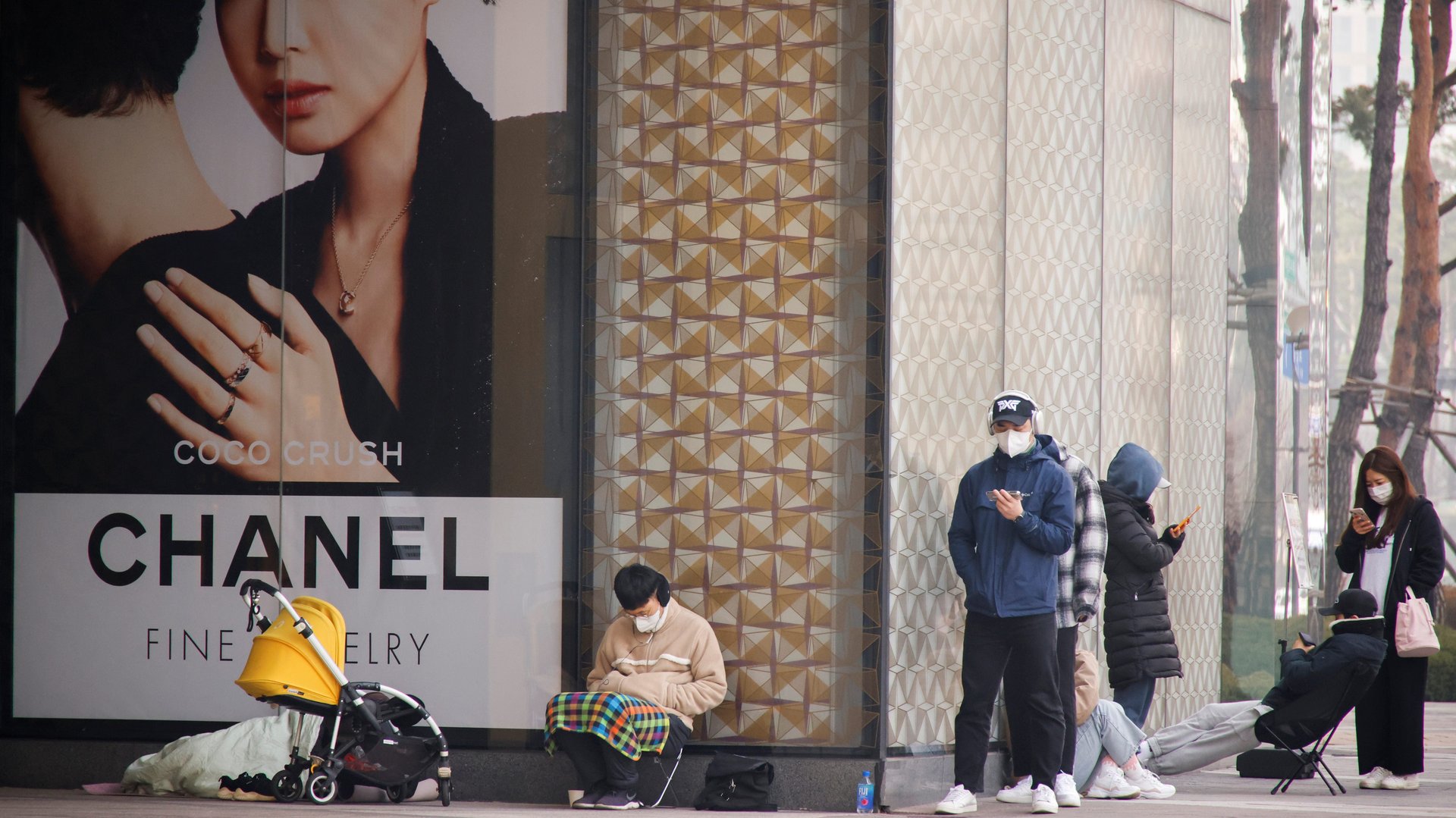Some Chanel customers are spending so much money the brand is giving them special stores
High-end fashion houses have always doted upon their wealthy clients. But lately, brands like Chanel worried that their standard store experience is not exclusive enough, have decided to offer their biggest spenders something new: entire private shops for them to roam.


High-end fashion houses have always doted upon their wealthy clients. But lately, brands like Chanel worried that their standard store experience is not exclusive enough, have decided to offer their biggest spenders something new: entire private shops for them to roam.
These private boutiques, which are invite-only to the top level of the client base, are set to open next year and are part of the French house’s push for further exclusivity. Last year, Chanel increased the prices of its handbags three times, pushing some styles past the $10,000 mark. Chanel bags now cost an average of 71% more than before the pandemic, according to the brokerage Jefferies.
The strategy seems to be working. Lines are regularly spotted out the door of their boutiques and last year, Chanel’s revenues jumped 50% from 2020. The top luxury groups across the board are shrugging off the war in Ukraine and a stock market meltdown, pointing to a stratification in spending between the wealthy and the mere mass affluent.
To be clear, many luxury brand flagships stores already have a roped-off top floor or private wing that’s only accessible to VIPs, but a subsiding pandemic is driving demand for extraordinary experiences. The new private boutique strategy will also demarcate between resellers who take advantage of tax and currency differences to flip goods and true clients who love the brand.
These exclusive stores are set to open in Asia first. Not only is that where most of the future growth in luxury lies, but Asian shoppers place much higher priority on an exclusive shopping experience, a Julius Baer report released this week found.
“Europeans want a quality product with good advice and aftercare, while those in Asia are more interested in an exclusive buying experience,” it said. “This might explain why many of the most luxurious brand boutiques today are in Dubai or Shanghai, not London or Milan.”
Invite-only stores are a growing trend in luxury fashion
It’s not just Chanel either. Last December, Brunello Cucinelli opened an appointment-only store in New York, a space designed so that clients feels like they’re stepping into the designer’s home. That same year, Harrods, the vaunted British department store, began rolling out its “Residence” concepts across China. First opened in Shanghai and then Beijing, the spaces are strictly by invitation to its top-tier of clients.
“I don’t think that the ultra-high-net-worth segment want to fight their way into a mall,” Harrods managing director Michael Ward said at the time. “They want to have that ability to be dropped off, taken to their private suite, and meet their friends.”